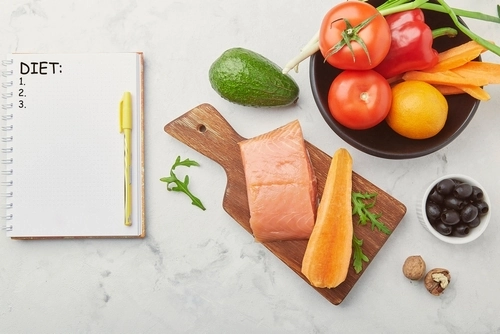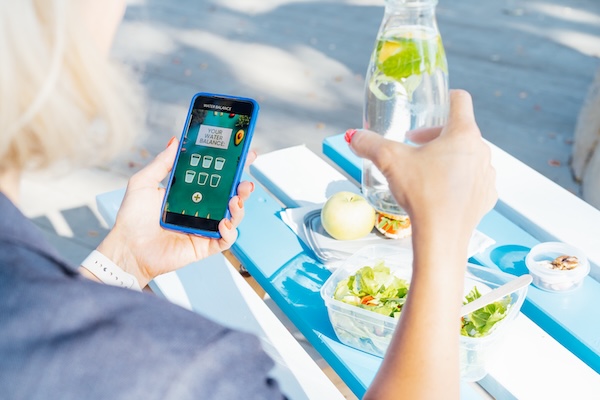If you’re navigating the path to better health and sustainable weight loss, the Mediterranean Paleo diet might be the perfect fit for you. This innovative eating plan merges the heart-healthy principles of the Mediterranean diet with the nutrient-dense, whole-food focus of the Paleo approach.
At Upstate Weight Loss Solutions, we offer healthy meal plans to help our clients achieve lasting wellness.
What Is the Mediterranean Paleo Diet?
The Mediterranean Paleo diet combines the best aspects of two renowned dietary plans.
The Mediterranean Diet emphasizes fruits, vegetables, whole grains, legumes, nuts, and healthy fats like olive oil. It includes moderate consumption of fish, poultry, and dairy, with limited red meat and sweets.
The Paleo Diet focuses on foods presumed to be available to Paleolithic humans, such as lean meats, fish, fruits, vegetables, nuts, and seeds. It excludes grains, legumes, dairy, refined sugars, and processed foods.
The Mediterranean Paleo Diet is a healthy, balanced way of eating that embraces heart-healthy foods like fresh vegetables, lean proteins, and healthy fats while eliminating processed foods.
Eating whole foods rich in nutrients supports weight loss, reduces inflammation, and improves overall health.
What Can I Eat on the Mediterranean Paleo Diet?
Here’s a summary of the types of foods you can eat on the Mediterranean Paleo diet and what to avoid.
- Foods to Eat: Lean proteins, fruits, vegetables, seeds, nuts, healthy fats
- Foods to Limit: Red meat and whole grains
- Foods to Avoid: Processed foods and added sugars
We’ll explore the different food options in greater detail below.
Foods Allowed on the Mediterranean Paleo Diet
The heart of the Mediterranean Paleo diet is about eating clean, whole, nutrient-dense foods that nourish your body, promote healthy weight loss, and reduce inflammation. Think of it as eating the way our ancestors might have, but with the rich flavors and ingredients of the Mediterranean region.
Proteins
Protein is a vital building block for your body, providing essential amino acids and supporting muscle maintenance. Eating nutritious protein on the Mediterranean Paleo diet increases metabolism, reduces appetite, and influences several weight-regulating hormones.
Protein options can include:
- Grass-fed beef and lamb: More nutrient-rich than grain-fed, with higher omega-3 content.
- Free-range poultry: Chicken, turkey, and duck offer lean protein without added hormones.
- Wild-caught seafood: Salmon, sardines, mackerel, and cod are rich in omega-3 fatty acids that support heart and brain health.
- Pasture-raised eggs: Full of high-quality protein and important nutrients like choline and vitamin D.
Vegetables
Vegetables are the powerhouse of the Mediterranean Paleo diet. They’re packed with fiber, antioxidants, and phytonutrients that help fight inflammation and keep your digestive system running smoothly.
Eat a variety of healthy veggies for the best nutrition. There are many great choices:
- Leafy greens: Spinach, kale, Swiss chard, arugula, romaine
- Cruciferous vegetables: Broccoli, cauliflower, Brussels sprouts, cabbage
- Nightshades: Tomatoes, eggplant, bell peppers
- Other great options: Zucchini, squash, asparagus, mushrooms, green beans, onions, garlic, cucumber
Fruits
Fruits provide natural sweetness along with fiber, vitamins, and antioxidants. The Mediterranean Paleo Diet allows for low-glycemic, good carbohydrates like fruit.
Enjoy these fruits regularly:
- Berries: Blueberries, raspberries, blackberries, and strawberries are low in sugar and high in antioxidants.
- Citrus: Oranges, lemons, limes, and grapefruits are refreshing and full of vitamin C
- Stone fruits: Peaches, nectarines, and plums are great when in season.
- Apples and pears: These are fiber-rich and satisfying
- Melons: Cantaloupe, honeydew, and watermelon are best enjoyed during hot summer months.
Healthy Fats
Fat is not the enemy. It’s essential for hormone balance, energy, and absorbing fat-soluble vitamins like A, D, E, and K. Here are some healthy fats you can eat on the Mediterranean Paleo Diet:
- Extra virgin olive oil: This Mediterranean staple is rich in monounsaturated fats and antioxidants.
- Avocados and avocado oil: These are heart-healthy and creamy, perfect for salads or cooking.
- Coconut oil: It’s great for high-heat cooking and supports gut health.
- Nuts: Many nuts, like almonds, walnuts, pecans, and macadamia nuts, are packed with healthy fats and fiber.
- Seeds: Flaxseeds, chia seeds, sunflower seeds, and pumpkin seeds are high in omega-3s and trace minerals.
- Fatty fish: Examples include salmon and sardines. Fatty fish are a source of protein and healthy fat.
Foods to Limit on the Mediterranean Paleo Diet
These foods may not be strictly “off-limits,” but they should be consumed in small amounts or occasionally, depending on your individual health goals and how your body responds. At Upstate Weight Loss Solutions, we can help you decide what level of moderation works best for you.
Whole Grains
Whole grains are a hallmark of the traditional Mediterranean diet, but Paleo eliminates all grains, even whole and ancient varieties. Why?
- Grains contain antinutrients like phytic acid and lectins, which can interfere with nutrient absorption.
- They tend to be high in carbs, which can spike blood sugar and stall weight loss.
- Gluten-containing grains (like wheat, rye, and barley) can trigger inflammation or digestive issues, even in people without celiac disease.
The Mediterranean Paleo diet allows whole grains in moderation. This includes:
- Brown rice
- Oats
- Quinoa
- Whole wheat bread
- Farro
- Barley
Red Meat
While Paleo emphasizes meat, the Mediterranean Paleo diet encourages limiting red meat intake for heart health.
- Instead of eating red meat daily, aim for once or twice a week at most.
- Choose lean, grass-fed, and pasture-raised options when you do eat red meat to reduce saturated fat and increase omega-3s.
- Avoid fatty cuts and processed meats.
If you’re hungry for protein, try seafood, chicken, turkey, or wild game.
What Can You Not Eat on the Mediterranean Paleo Diet?
These foods are not compatible with the Mediterranean Paleo diet because they are ultra-processed, inflammatory, or nutrient-poor. Avoiding these will accelerate weight loss, reduce inflammation, and improve energy levels.
Refined Sugars and Sweeteners
Sugar is everywhere, often hiding in packaged “health” foods. It’s inflammatory, addictive, and promotes fat storage.
Avoid:
- White sugar
- Brown sugar
- High-fructose corn syrup
- Cane sugar and evaporated cane juice
- Agave nectar (high in fructose)
- Artificial sweeteners (like aspartame, sucralose)
Dairy
Traditional Mediterranean diets include cheese and yogurt, but Paleo eliminates all dairy due to its potential to cause inflammation, acne, digestive issues, and lactose intolerance.
On the Mediterranean Paleo Diet, you should avoid or restrict:
- Milk
- Cheese
- Yogurt
- Butter
Processed and Packaged Foods
If it comes in a box, bag, or has a shelf life of 2 years, it’s excluded from the Mediterranean Paleo diet. These foods are often full of refined carbs, added sugars, trans fats, artificial preservatives, and empty calories.
Avoid:
- Chips, crackers, cookies
- Breakfast cereals
- Granola bars
- Frozen dinners
- Instant noodles
Benefits of the Mediterranean Paleo Diet
Adopting this dietary approach offers numerous health advantages:
- Weight Loss: Emphasizing whole foods and healthy fats can lead to sustainable weight reduction.
- Heart Health: Rich in omega-3 fatty acids and antioxidants, supporting cardiovascular function.
- Reduced Inflammation: Eliminating processed foods and incorporating anti-inflammatory ingredients like olive oil and leafy greens.
- Improved Blood Sugar Control: Low in refined carbohydrates, aiding in stabilizing blood glucose levels.
- Enhanced Cognitive Function: Nutrients that support brain health and may reduce the risk of cognitive decline.
Healthy Meal Plans at Upstate Weight Loss Solutions
At Upstate Weight Loss Solutions, we offer Mediterranean Paleo meal plans designed to simplify your journey toward better health:
- Chef-Prepared Meals: Award-winning chefs craft delicious, nutrient-dense dishes.
- Properly Portioned Servings: Our meals are designed to support weight management without overindulgence.
- One-on-One Coaching: Both the 5-week and 12-week Mediterranean Paleo meal plans also include personalized one-on-one coaching to help you lose weight and keep it off.
- Proven Success: Many clients who embrace the Mediterranean Paleo diet experience weight loss, improved energy, and better digestion.
The Mediterranean Paleo diet isn’t a fad. It’s a return to how we were meant to eat. By focusing on clean proteins, colorful veggies, healthy fats, and natural ingredients, you’re giving your body the fuel it needs to feel great, lose weight, and thrive.
Whether you’re new to the world of healthy eating or looking to break through a weight loss plateau, our team at Upstate Weight Loss Solutions is here to help.
Contact us today to get started with our healthy meal plans.





